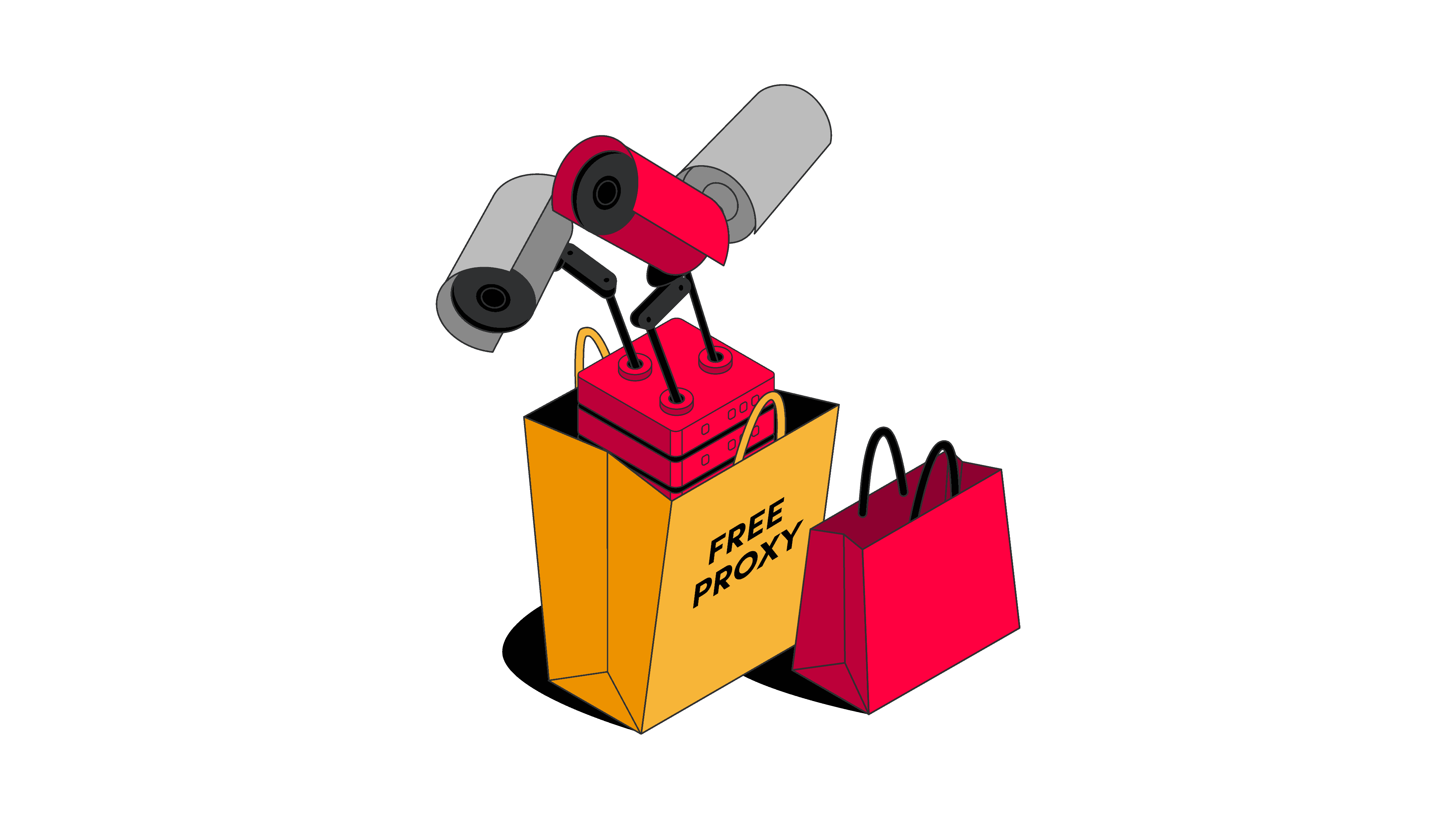2 Reasons You Should Never Use a Free Proxy Again
Paying nothing might cost you much more.

Many people I know, including myself, spend copious amounts of time online. And personally, I keep getting paranoid when every week I see new data breaches, one always bigger than the last one.
While sending links to each other we keep questioning – how does it keep on happening and how to avoid becoming a victim? Well, here we usually talk about one of the methods to stay away from these risks online – proxies.
What Is a Proxy?
Proxy is a middleman between the user and the website. Here’s a short rundown on how it works:
- There are four kinds of proxies: residential, mobile, ISP, and data center;
- There are three types of proxies by usage: dedicated (private), shared, and semi-dedicated (shared among 2-3 people);
- They change your IP address and process web requests for you;
- They increase anonymity levels online;
- You can bypass geolocation blocks using proxies;
- They are usually used with tools for web scraping and data gathering;
- Can be compared to VPNs, but shouldn’t;
- The good ones come at a price.
When is it OK to Use a Free Proxy?
Never. Don’t do it for your own safety. Anything labelled “free” is rarely actually completely free – someone is getting something out of it, and they might as well be getting more profitable outcomes than you.
You might think that I sound paranoid, but there are far too many cases of misused personal information out there. But what about free proxies? What are the reasons to not use them?
Information Leaks
With free proxies you never know who actually is in the middle between you and the web – you can only assume those free proxy list websites are made out of kindness. You might think it’s a safe proxy server that will only make your connection secure, but a lot of the times, they actually modify your content in one way or another.
Most free proxy servers don’t allow HTTPS connections, which means that your connection isn’t encrypted. There are quite a few very dangerous things things that can happen due to this:
- Your login information (usernames and passwords) can get stolen;
- Your bank login or your credit card information can get stolen;
- All your actions on your visited websites can become visible to 3rd parties;
- Hackers can monitor your connection and gather sensitive data.
And there is always more that can happen, sure. One way or another, the gist is that you are putting your personal data at risk (to put it mildly) by using free proxies.
Information Modification or Nothing is Ever Free
Not only can your information get leaked or misused, but the content you are targeting can be and is being modified more often than not. While you might already know where this is going, I will still elaborate a bit: 3rd party data is being injected in your target websites, both to HTML and Javascript code.
This comes back to the statement that someone has to be making money out of free proxies because they are not free to set up and maintain, whatsoever. Most of the times you will get slower loading times and possibly malicious ads may show up where there shouldn’t be any. You can either be redirected to a site with ads, which isn’t the worst, but ads can also be injected to any website you visit.
And as ProxyRack puts it: “These ads give the impression of having been vetted by the site they appear on, but they haven’t been. The ads could even constitute “malvertising,” content designed to introduce malicious JavaScript to a trusted page.”
How to Choose a Trustworthy Proxy Service Provider?
The best advice in this case is to do your own research. There are tons of reviews, ours included, that you can read to make up your mind. While free proxies seem fun and, most importantly, FREE (what a clickbait word, isn’t it?), they aren’t worth the huge risk.
Figure out your needs first: do you need them for personal use, accessing geoblocked content, keeping your web searches private and secure, PokemonGo, or ticket purchasing? Maybe you need them for your business, like sneaker copping social media account management, web scraping?
Proxies for personal use (in small amounts) aren’t even that pricey, i.e., Decodo (formerly Smartproxy) offers an option to pay as you go – only pay for the bandwidth you use instead of committing to a monthly plan. Many proxy providers also have free trials which can help you see if the service is suitable for you. Proxies for business, on the other hand, are usually pricier, but your budget is very likely higher. In most cases, the more you buy, the better the price gets, too.
It’s better to be safe than sorry – try to go for someone with great reputation, who has great reviews from their users. My favorite places to look that up are Trustpilot, Quora, and from time to time we check the Web Scrapers channel on Slack. Also, this may seem basic, but check their social media mentions – users tend to ask most questions there and companies respond, so a lot of clarity and transparency!
I think I went over the most important reasons to avoid free proxy lists online, but share your opinion (or ask questions) in the comments below!

Frequently Asked Questions About Free Proxy Servers
In short: They’re slow and unstable. They can also steal your information or inject ads where there shouldn’t be any. The article explains how in more detail.
HTTP proxies. They use the HTTP protocol which sends information unencrypted. This means anyone can intercept and read your data.
No! It’s the same as with free proxies: the provider will mine your data or even turn your own device into a proxy.